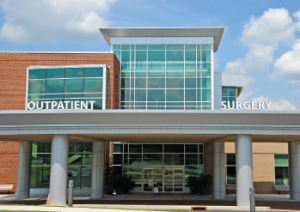
Black Otolaryngologists Share Their Experiences with Discrimination in Medicine
Black otoloaryngologists share their experiences and suggest what can be done to make things better in medicine.

Black otoloaryngologists share their experiences and suggest what can be done to make things better in medicine.

A temporary loosening of federal regulations and expanded reimbursement has lifted a number of barriers, encouraging more physicians to experiment with telemedicine.

If current trends hold, an ever-growing number of outpatient surgeries will be done in an ambulatory surgical center These outpatient centers can bring considerable benefits for the right patients and otolaryngologists.

Otolaryngology programs were able to shift from in-person lectures to robust online sessions and focused hands-on surgical training in the areas that were available to continue their residency training during the coronavirus pandemic.

The foundation for ethical care in Western medicine is the development of a patient-physician relationship that’s built on honesty and meaningful communication, leading to the capacity for shared decision-making.

The need for social distancing triggered by coronavirus requires a change in physician-to-physician interactions from in-person meetings to virtual.

Common challenges when treating physician-patients include maintaining boundaries and avoiding assumptions about patient knowledge and behaviors.
Preoperatively administered GCS improved olfaction in CRS patients with nasal polyps is comparable to surgery, and changes in steroids predicted olfactory outcome postoperatively.
Women are currently disproportionately underrepresented in otolaryngology leadership roles, but a shift may be taking place.
A look at how pathologic features contribute to clinical outcomes of early oral tongue squamous cell carcinoma relative to tumor depth of invasion.
A look at the association between orthonasal olfaction and chemosensory perception in patients with smell loss.
Broad amplification of accurate information is essential to counteract the massive increase in demand for unproven and potentially hazardous coronavirus treatments prompted by high-profile endorsements.

Available data suggest that complication rates of alloplastic implants are similar to those seen with autologous costal cartilage and may be acceptable in select patient populations.

Earlier forehead flap division can have a positive influence on patient quality of life and is a cost-effective option.